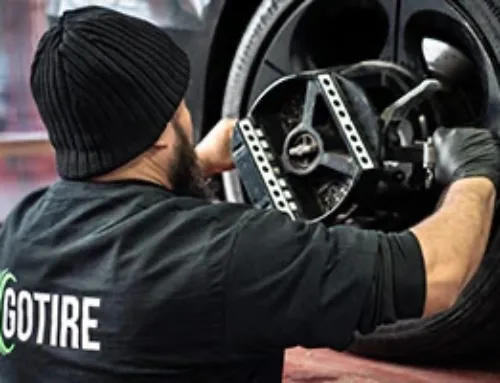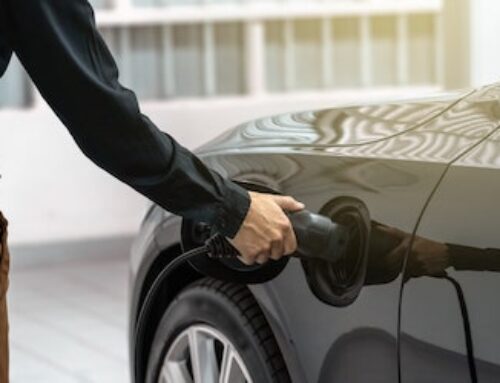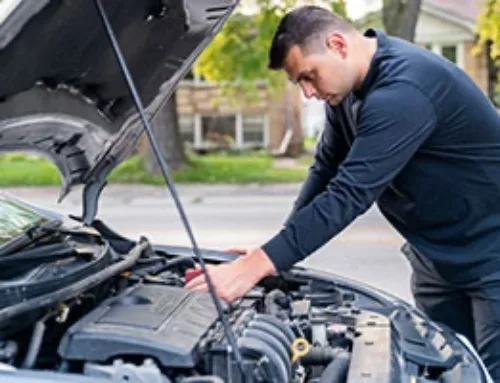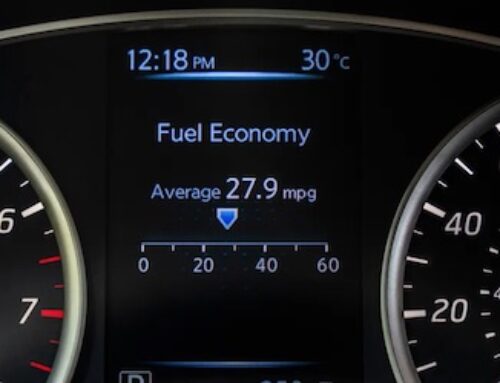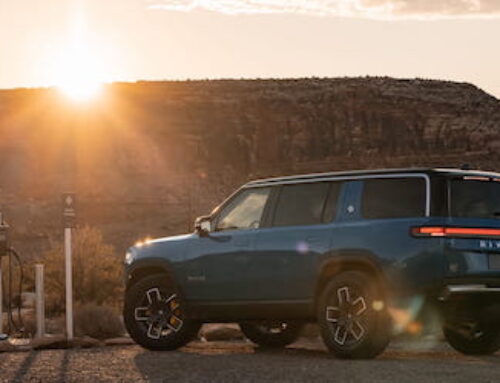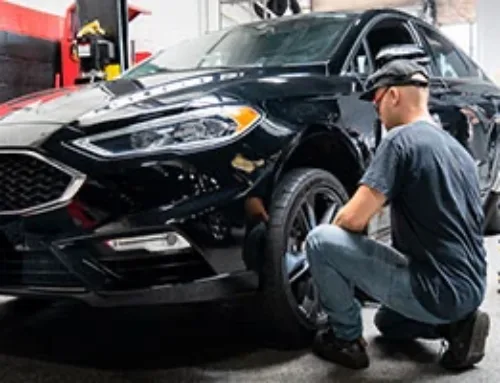Table of Contents
Have you ever stood in a dealership, overwhelmed by the multitude of shiny new cars, only to wonder, “Should I buy a used car?” Choosing between a new or used car can be quite challenging in today’s world. This GoTire 2023 Guide aims to help you navigate the process of buying a used car, weigh the pros and cons, and make the best decision for your needs and budget. Are you ready to make an informed decision? Let’s begin!
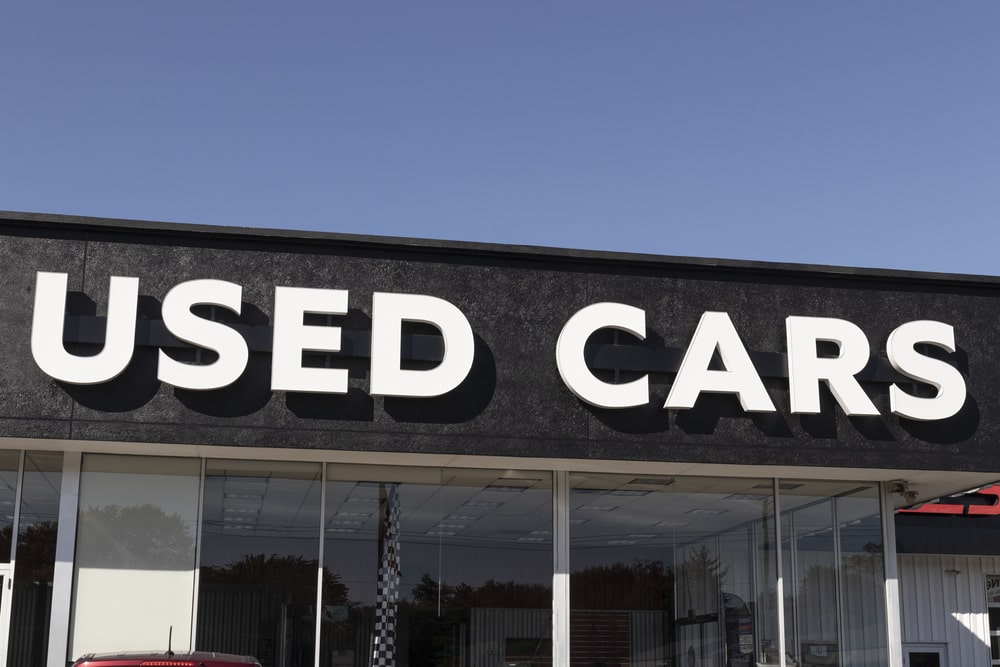
Pros and сons of buying a used car
When it comes to buying a used car, there are advantages and disadvantages that you, as a potential buyer, should be aware of. The benefits of purchasing a used vehicle instead of a new or used car include cost-effectiveness, a wide selection, and reduced insurance rates. And the common drawbacks? A car not being in brand-new condition, its mileage, the potential extra maintenance costs, and possibly lacking a warranty.
It is also very important to consider your monthly vehicle-related expenditures when planning your budget for a used car purchase. Financial experts suggest allocating no more than 20% of your net salary towards car-related expenses. With used-car prices trending downwards over the past six months, now might be the perfect time to invest in a pre-owned vehicle.
Pros
Affordability and depreciation
One of the key benefits of buying a used car is its affordability and slower depreciation rate compared to new vehicles. The loan-to-value ratio of a used car is more consistent than a new car. If you have been dreaming of a luxury car, this year’s model may not fit your budget. Consider buying a two or three-year-old alternative that suits your financial capabilities. Due to decreased sales, some automakers have even extended their certified pre-owned (CPO) programs to include older, higher-mileage cars.
Variety of choice
Another advantage of purchasing a used car is its variety of choices. Many pre-owned car models and years are available, providing more alternatives to accommodate your needs and financial plans when looking for a new or used vehicle. Whether you’re looking for a family-friendly SUV, a fuel-efficient sedan, or a sporty convertible, the used car market, including electric vehicles, has something for everyone. So, why limit yourself to the latest models when a whole world of choices is waiting for you?
Lower insurance costs
Insurance costs for used cars are generally lower than for new cars due to their lower value. When deciding on car insurance coverage, consider the age of the vehicle. If it’s older, you may opt for liability coverage if the state allows it, as opposed to including comprehensive and collision coverage if the vehicle is newer.
No hidden costs
Buying a used car can help you avoid hidden costs associated with new car purchases, such as dealership fees, taxes, and other additional costs not included in the sticker price. When you purchase a pre-owned vehicle, it has already been registered, and the taxes have already been settled. This means you can save even more money in the long run and avoid any unwelcome surprises when it’s time to pay the bill.

Cons
Not-a-brand-new-condition
While a used car may not be in perfect condition, it’s essential to remember that mileage on a pre-owned vehicle can affect its worth and potential longevity. A higher mileage could indicate additional wear and tear on the car. However, the potential lifespan of a used car depends on various factors, such as the make and model, the condition of the car, and the amount of maintenance it has received. By carefully inspecting the car and assessing its condition, you can make an informed decision about whether it’s the right choice for you.
Mileage
Potential maintenance issues may be encountered with used cars, particularly if prior owners haven’t adequately maintained them. When budgeting for a used car, it’s also prudent to consider potential maintenance costs. Depending on the age and condition of the car, it may be necessary to consider the cost of repairs or replacements of parts such as brakes, tires, and other components.
Potential maintenance issues
Some used cars may not come with a warranty, leaving you responsible for any maintenance issues that may arise. To minimize the risks of purchasing a pre-owned vehicle, consider buying a certified pre-owned (CPO) car. A CPO car has been evaluated and approved by a manufacturer to meet certain standards and is provided with a guarantee against defects, similar to a brand-new car warranty.
Can lack a warranty
While a warranty can provide peace of mind, used cars may not always come with one due to the original manufacturer’s warranty expiration or because the car was acquired from a private seller who did not provide a warranty. Some used cars, like certified pre-owned vehicles, do come with warranties, offering additional assurance of the car’s reliability.

How to choose the right used car
Assess your needs
Before diving into the car-buying process, it’s crucial to determine your needs and preferences. Consider factors such as the size of the vehicle, the types of features you desire, and the fuel efficiency you require.
Set a budget
When setting a budget for your used car purchase, consider factors like the initial deposit, periodic payments, and potential upkeep expenses. Financial experts suggest allocating no more than 10-15% of your annual income to purchase a used car. By establishing a budget, you can focus your search on cars that fit your financial constraints, making the car-buying process less overwhelming.
Research models
Once you’ve assessed your needs and set a budget, it’s time to research various car models to find the one that best suits your needs. Look for models with a strong reputation for reliability, safety, and resale value. By thoroughly researching different car models, you’ll be better equipped to make an informed decision and find the right used car.
Inspecting and evaluating a used car

Before finalizing your used car purchase, it’s essential to inspect and evaluate the vehicle to ensure it meets your expectations and doesn’t have any hidden issues. This process includes obtaining a vehicle history report, taking a test drive, and having a mechanic inspect the car. It’s important to take the time to thoroughly inspect the car before making a purchase!
Vehicle history report
A vehicle history report is essential when buying a used car, as it provides information about the car’s ownership history, accident history, title status, mileage, and more. Obtaining vehicle history reports can help you make an informed decision and avoid potential issues down the road. Services like Carfax and AutoCheck can provide comprehensive reports on a car’s past, giving you the information you need to make a confident purchase.
Test drive and inspection
A test drive is a crucial part of car buying, as it allows you to assess the car’s performance and overall condition. During the test drive, evaluate the brakes, steering, acceleration, and other components to ensure proper functioning. In addition to the test drive, have a mechanic inspect the car to uncover any potential issues that may not be visible to the untrained eye. This will give you added peace of mind and help you avoid costly repairs later on.
Financing options for used cars

Several options are available when financing your used car purchase, including auto loans, leasing, and paying cash. Each financing option has its pros and cons, so it’s essential to carefully consider which one is the best fit for your needs and financial situation.
Auto loans
Auto loans are a popular financing option for used car buyers, allowing you to spread the car’s cost over time. To secure the most advantageous terms, it’s important to compare the interest rates and terms offered by various lenders. Keep in mind that current auto loan rates should be taken into account when considering this financing option.
Leasing vs. buying
Leasing a used car can be an attractive option for some buyers, as it typically involves lower monthly payments and the freedom to drive a new vehicle every few years. However, leasing also comes with mileage restrictions and may result in additional costs at the end of the lease term. Buying a used car, on the other hand, allows you to build equity in the vehicle and offers greater freedom in terms of customization and mileage. Carefully weigh the pros and cons of leasing versus buying to determine which option is best for your needs.
Paying cash
Paying cash for a used car can save you money on interest and financing fees but may require a larger upfront investment. It can be a smart choice if you have the financial means to pay cash for a used car, as you won’t have to worry about monthly payments or interest charges. This option may not be feasible for everyone, especially if you’re on a tight budget or need to allocate funds for other expenses.
Tips for negotiating and closing the deal

Research market prices
To ensure you’re getting a fair price for the used car you’re interested in, it’s important to research market prices for similar models. This will give you a better understanding of what the car is worth and help you negotiate a fair price with the seller. Keep in mind that market prices can fluctuate, so it’s essential to stay informed and up-to-date on current trends.
Be prepared to walk away
Being prepared to walk away from a deal is crucial during the negotiation process if the seller isn’t willing to negotiate or meet your terms. Remember, plenty of other used cars are on the market, and you don’t want to settle for a deal that doesn’t meet your needs or expectations. By being willing to walk away, you’ll be in a stronger position to negotiate and ultimately secure the best possible deal.
Finalize the purchase
Once you’ve negotiated a price and agreed on the terms, it’s time to finalize the purchase. This involves signing the necessary paperwork, transferring the title, and adding the car to your insurance policy. Be sure to read and understand all the documentation before signing, as this will help you avoid any potential issues or misunderstandings down the line.
2023 The US average market prices for used cars: 5 most popular models
Looking for a reliable used vehicle? Here is a list of the most popular used car models in the US and their average market prices in 2023.
Honda Civic – $12,000
Toyota Corolla – $11,500
Ford F-150 – $25,000
Chevrolet Silverado – $23,000
Nissan Altima – $14,000
Keep in mind that these prices may vary depending on the condition, mileage, and specific features of each car, so be sure to research the market prices for the specific model you’re interested in.
Frequently Asked Questions
Are used cars really worth it?
Yes. Buying a used car is a great financial decision for those on a budget. It can save you money due to the lower sticker price and reduced fees, insurance costs, and depreciation.
What is the best age of a used car to buy?
2-3 years old. For the best bang for your buck, buying a car no older than 3 years old will give you the most optimal combination of quality and value.
How many miles is worth buying a used car?
When buying a used car, an ideal mileage can be determined by multiplying 12,000 miles by the age of the car. However, other factors should also be considered, such as the number of previous owners and driving conditions. Good mileage for a car that’s 5 years old is 60,000 miles.
Why is it better to buy a used car than a new car?
Buying a used car can save you money on monthly payments, insurance, and other fees, while depreciation happens at a slower rate. This makes it a more cost-effective option than buying new.
What is the current trend in used car prices?
Used car prices have been trending downwards over the past six months but remain at historically high levels. Market instability means that prices may vary depending on the model and market conditions.
Are there any advantages to buying a used car from a private seller?
Buying a used car from a private seller can sometimes result in a lower purchase price and the opportunity to negotiate more directly with the seller. However, it’s important to thoroughly inspect the car and obtain a vehicle history report to ensure you’re making an informed decision.
How do I negotiate the best deal on a used car?
To negotiate the best deal on a used car, research market prices for the specific model you’re interested in, be prepared to walk away if the seller isn’t willing to meet your terms and finalize the transaction by signing the necessary paperwork and transferring the title.
What should I consider when setting a budget for a used car?
When setting a budget for a used car, consider factors like the initial deposit, periodic payments, and potential upkeep expenses. Financial experts suggest allocating no more than 10-15% of your annual income for the purchase of a used car.
What are some common maintenance issues I might encounter with a used car?
Potential maintenance issues with used cars may include the need for new tires, brake pads, rotors, or an oil change. Budgeting for these potential expenses is important when purchasing a used car.


